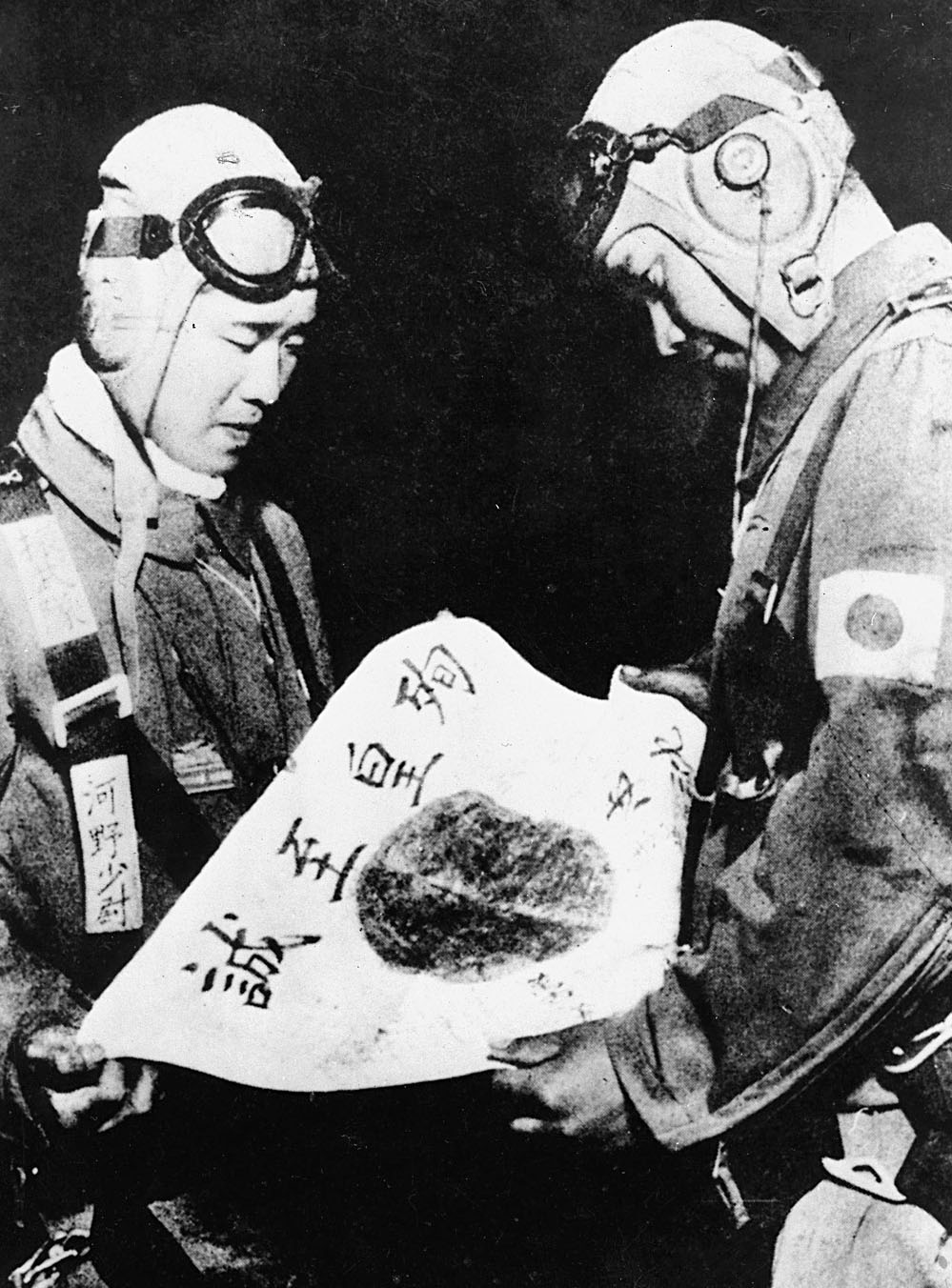A History of World Societies:
Printed Page 946
Listening to the Past
Ultranationalist Pamphlet for Japanese Students
Listening to the Past
Ultranationalist Pamphlet for Japanese Students
In August 1941, only four months before Japan’s coordinated attacks on Pearl Harbor and colonial empires in Southeast Asia, Japan’s Ministry of Education issued “The Way of Subjects.” Required reading for high school and university students, this twenty-
As this selection suggests, ultranationalism in Japan combined a sense of mission with intense group solidarity and unquestioning devotion to a semidivine emperor. Thus Japanese expansion into Manchuria and the war in China were part of Japan’s sacred calling to protect the throne and to free Asia from Western exploitation and misrule. Of course, an unknown percentage of students (and adults) did not believe that the myths of Japan’s state religion were literally true. Nevertheless, they were profoundly influenced by extremist nationalism: Japanese soldiers’ determination to fight to the death was a prime indicator of that influence.
“The way of the subjects of the Emperor issues from the polity of the Emperor, and is to guard and maintain the Imperial Throne coexistent with the Heavens and the Earth. This is not the sphere of the abstract, but a way of daily practice based on history. The life and activities of the nation are all attuned to the task of giving great firmness to the foundation of the Empire. . . .
Modern history, in a nutshell, has been marked by the formation of unified nations in Europe and their contests for supremacy in the acquisition of colonies. Early in the modern period of history, the American continent was discovered and, stimulated by this, Europeans vigorously found their way to India and China by sounding the furrows of the oceans. Their march into all parts of the world paved the way for their subsequent world domination politically, economically, and culturally and led them to act freely as they pleased, facing them to believe that they alone were justified in their outrageous behavior. . . .
The industrial development propelled by invention of machines demanded a considerably large amount of materials and the consequent overseas markets for the disposal of manufactured goods. The result was that a severe contest for colonial acquisition and trade competition ensued naturally and that wars of the strong preying on the weak were repeated. The history of wars waged among Spain, Portugal, Holland, Britain, France, and other countries in the modern age, and the rise and fall of their influence, have close connections with their overseas aggression. . . .
The self-
That these [totalitarian] principles show great concern for Oriental [Eastern] culture and spirit is a noteworthy fact that suggests the future of the Occidental civilization and the creation of a new culture. Thus the orientation of world history has made the collapse of the world of the old order an assured conclusion. Japan has hereby opened the start for the construction of a new world order based on moral principles.
The Manchurian Affair was a violent outburst of Japanese national life long suppressed. Taking advantage of this, Japan in the glare of all the Powers stepped out for the creation of a world based on moral principles and the construction of a new order. This was a manifestation of the spirit, profound and lofty, embodied in the Empire-
Japan has a political mission to help various regions in the Greater East Asia Co-

Japan, since the founding of the Empire, has been basking under a benign rule of a line of Emperors unbroken for ages eternal, and has been growing and developing in an atmosphere of great harmony as a nation, consisting of one large family. However diverse the Empire’s structures in politics, economy, culture, military affairs, and others may be, all finally are unified under the Emperor, the center. The country has lived under the Imperial rule and glory.
The ideals of Japan are to manifest to the entire world the spirit of her Empire-
The Imperial Family is the fountain source of the Japanese nation, and national and private lives issue from this. . . .
The way of the subjects is to be loyal to the Emperor in disregard of self, thereby supporting the Imperial Throne coexistence with the Heaven and with the Earth. . . .
The great duty of the Japanese people to guard and maintain the Imperial Throne has lasted to the present since the Empire founding and will last forever and ever. To serve the Emperor is its key point. Our lives will become sincere and true when they are offered to the Emperor and the state. Our own private life is fulfillment of the way of the subjects; in other words, it is not private, but public, insofar as it is held by the subjects supporting the Throne.”
Source: “The Way of Subjects,” in Japan Times Advertiser, August 1941. Reprinted in David J. Lu, Japan: A Documentary History (Armonk: N.Y.: M. E. Sharpe, 1997), pp. 435–
QUESTIONS FOR ANALYSIS
- How does “The Way of Subjects” interpret modern history? In what ways do Western thought and action threaten Japan?
- What is Japan’s mission in Asia?
- What is the basis of Japanese sovereignty? What is the individual’s proper role in society?